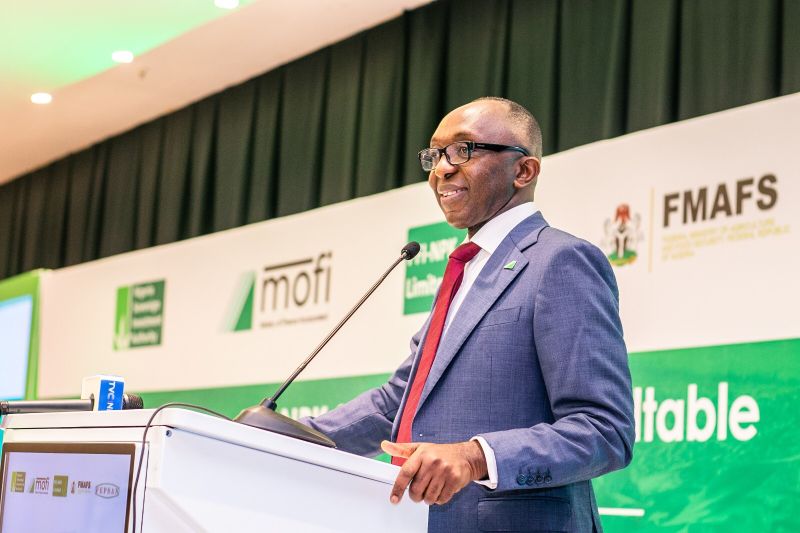Nigeria’s Presidential Fertiliser Initiative (PFI) is expanding efforts to secure a steady supply of fertiliser to farmers, a move aimed at boosting the country’s food production and reducing reliance on imports.
The programme has been central to the government’s food security strategy since 2016 and has entered its next phase, PFI 3.0.
According to a Saturday statement by the Ministry of Finance Incorporated (MOFI), it is designed to provide raw materials to blending plants across the country, ensuring farmers have access to the inputs they need for food and industrial crops.
As of September 2025, more raw materials have been supplied or ordered than in the entire 2024 season.
Additional agreements with international fertiliser manufacturers are in place to stock warehouses nationwide.
According to official data, blenders will now be able to access as much material as their production capacity can handle.

According to the Managing Director and Chief Executive Officer of the Ministry of Finance Incorporated (MOFI), Armstrong Takang, PFI aims to shield farmers from market shocks and support long-term planning.
“We are meticulously building a system that can insulate farmers from global market shocks and instil the confidence needed for long-term agricultural planning. We see the PFI as a prime example of public–private collaboration that can solve complex national challenges, and its future is a testament to Nigeria’s capacity for strategic reform.”
The initiative has already facilitated the production of more than 128 million bags of fertiliser delivered directly to farmers across Nigeria. Over 4.5 million metric tonnes of finished fertiliser were produced between 2021 and 2024.
President of the Fertiliser Producers and Suppliers Association of Nigeria (FEPSAN), Sadiq Kassim, said the growing network of blending plants was key to this output.
“We have witnessed significant improvement in productive capacity since the PFI’s inception. The number of operational blending plants has increased to over 90 across the country, giving us a total blending capacity of up to 13 million metric tonnes. This capacity is critical in ensuring fertiliser is consistently available for our farmers, bringing it closer to their farms and reducing transportation costs,” he said.
While supply has strengthened, rising prices remain a concern for farmers. These pressures may show foreign exchange volatility and global raw material costs, not local scarcity.

The operational management of PFI is set to transition from the Nigeria Sovereign Investment Authority (NSIA) to MOFI by November, a move intended to strengthen governance and ensure continuity. PFI 3.0 will also emphasise year-round availability, cost efficiency, local sourcing, and stronger traceability to curb hoarding and diversion.
READ ALSO: Were removing bottlenecks to food production in Nigeria, Tinubu says in Brazil
“PFI 3.0 will accelerate local sourcing and increase the proportion of inputs produced domestically over the coming years,” Mr Takang said. “This shift will strengthen Nigeria’s agro-industrial base and reduce reliance on unpredictable imports.”
Since its inception, the PFI has not only revived local blending capacity but also created jobs across the agricultural value chain, helping the country move closer to food sovereignty.







